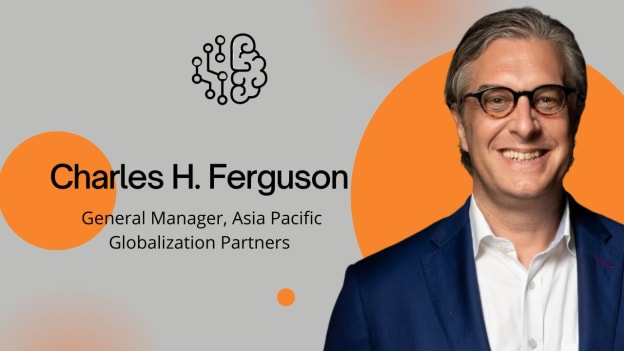Unleashing the Power of Technology in Talent Management and Global Expansion

In this conversation, we delve into the transformative impact of technology on global talent management and human resources. Charles H. Ferguson, General Manager, Asia Pacific at Globalization Partners, provides his distinctive insights while shedding light on the crucial role of Employer of Record services and G-P's launch of GIA, Global Intelligence Assistant.
How are technological advancements reshaping Talent Management? What are the benefits that we can expect at all levels: society, companies, and individuals?
Large language models, machine learning, artificial intelligence, and augmented intelligence are catalysing a profound shift in the realm of human resources and human capital management. The ongoing discourse about whether the hype surrounding these technologies is warranted misses the undeniable positive opportunities they offer. The future of these types of technologies is an ambitious one and one that we should be aiming for collectively as a society, as companies, and as individuals. They expedite the learning process and empower individuals to not only remain relevant in the workforce but to enhance their relevance through effective utilisation. What is critical today, more than before, is proper planning, proper strategic design, and proper partnership to unlock the value of these possibilities.
What will be the impact that these technologies will have in emerging economies, and what is your view on the impact on employment and jobs?
Emerging markets today have a unique opportunity to leapfrog over previous technological strides and harness the full potential of these innovations in real time. Younger, more adaptable demographics are poised to be early beneficiaries. While the long-term impact on employment and jobs remains uncertain, it's a nod to history and the age-old "Luddite Fallacy." As leaders, we need to ask ourselves whether this potential unemployment situation is just more of the same fears experienced by the Luddites in the 19th century or will this surge of automation and technological advances have a different impact on talent mobility.
How are we shifting from a model of labour arbitrage to a model of talent arbitrage?
From a business perspective, we continue to see business expansion globally. The critical evolution I see is that 25 years ago, business process outsourcing (BPO) was synonymous with labour arbitrage, which involved taking processes that were expensive and cumbersome and doing them in a market where they can be done more efficiently for less money. That model is hard to sustain because labour costs are increasing worldwide, and undoubtedly, many of these processes can now be automated through technology. The real motivator is talent arbitrage.
"Talent arbitrage" is a pivotal concept, especially in a globalised world driven by technology. Despite government policies, training and partnerships, there are certain markets that continue to suffer from skillset gaps. Here, technology emerges as the solution. Employers can tap into a global talent pool through alternative models like Employer of Record services or global growth technology. These flexible models support not just in hiring, from full-time employees to gig workers and contractors, but also in managing project-based arrangements. The key lies in identifying the right partner with the experience and technology to navigate these opportunities.
How is AI's changing how companies look at Global Expansion and Workforce Engagement?
Artificial intelligence (AI) will give a very different experience on how we engage with customers and our diverse workforce in the context of global expansion. This past October, G-P launched GIA, Global Intelligence Assistant. GIA is an AI-driven tool designed to provide guidance and support at every juncture of global growth. It leverages G-P's intelligence to offer real-time advice on compliance and facilitates interactions between employers and professionals. We are very excited about how these solutions can help us support our customers better with real-time decision support and compliance assurance.
What will be your advice for CHROs? How can the HR team infuse technology into their talent strategy, especially when accessing global talent pools?
My recommendation to CHROs is to understand the needs of the business and align their efforts to deliver business outcomes. Technologies can be used as Band-Aids, but real impact requires strategic design, which should be a part of your business planning; your talent strategy needs to be connected at all levels for it to drive the desired outcomes. My recommendation is that it should be collaborative, not just internally but also externally.
Access to global talent is the defining narrative for every contemporary company. The ability to tap into these global talent pools is a game-changer for expanding into diverse markets. Technology-driven models have emerged as the solution to the complexities that often deter expansion. Employer of Record services, in particular, stands as a lynchpin in facilitating smooth global expansion by managing the legal and compliance aspects of a global workforce. By embracing these models, organisations can obliterate barriers to growth and extend their reach into new markets, significantly shaping the trajectory of their growth and expansion.
















